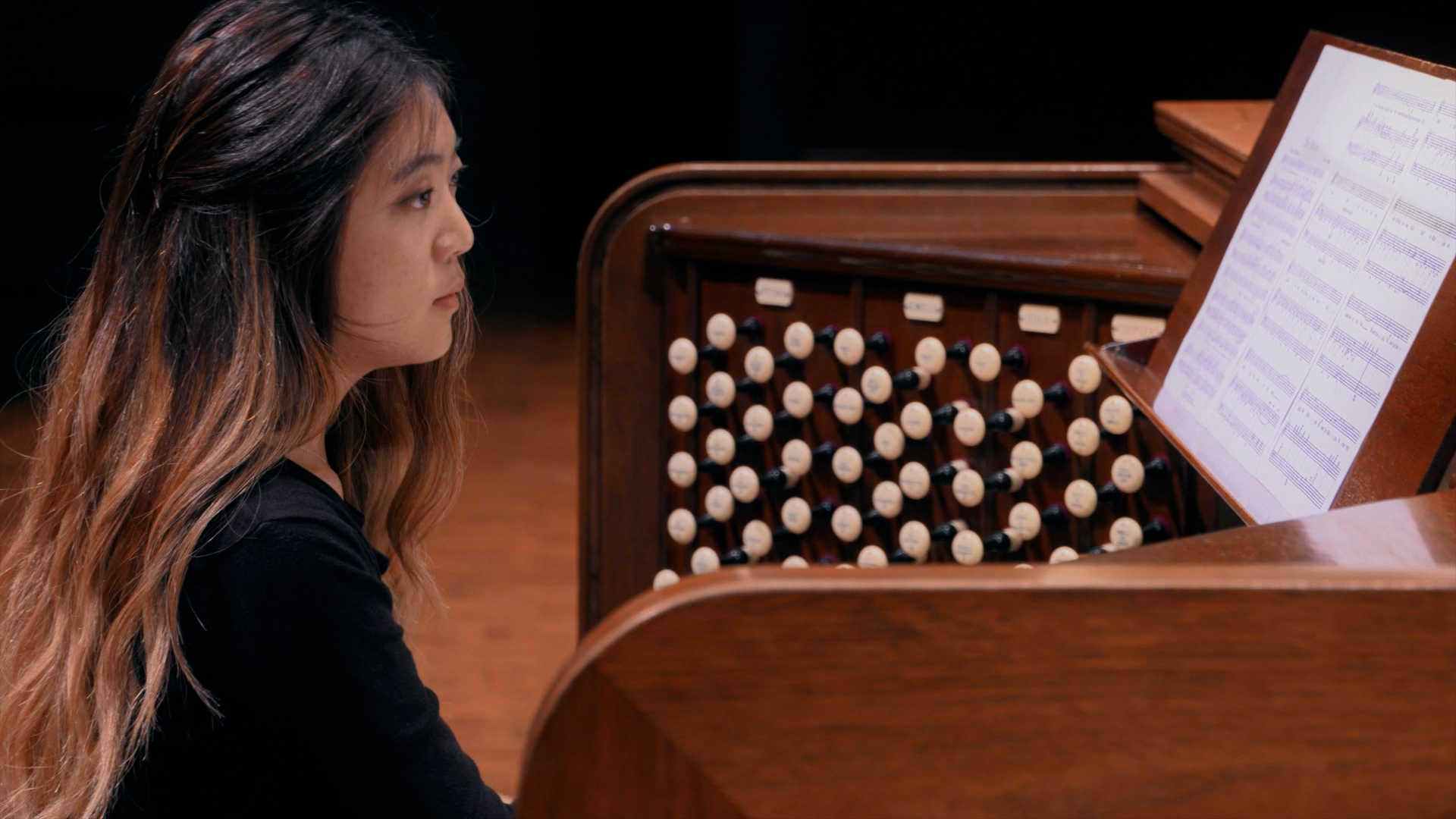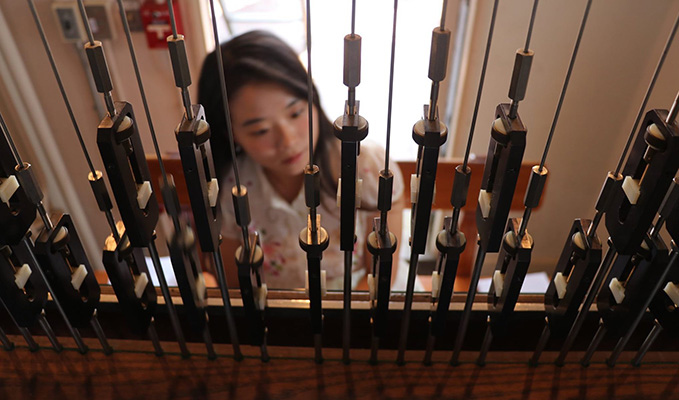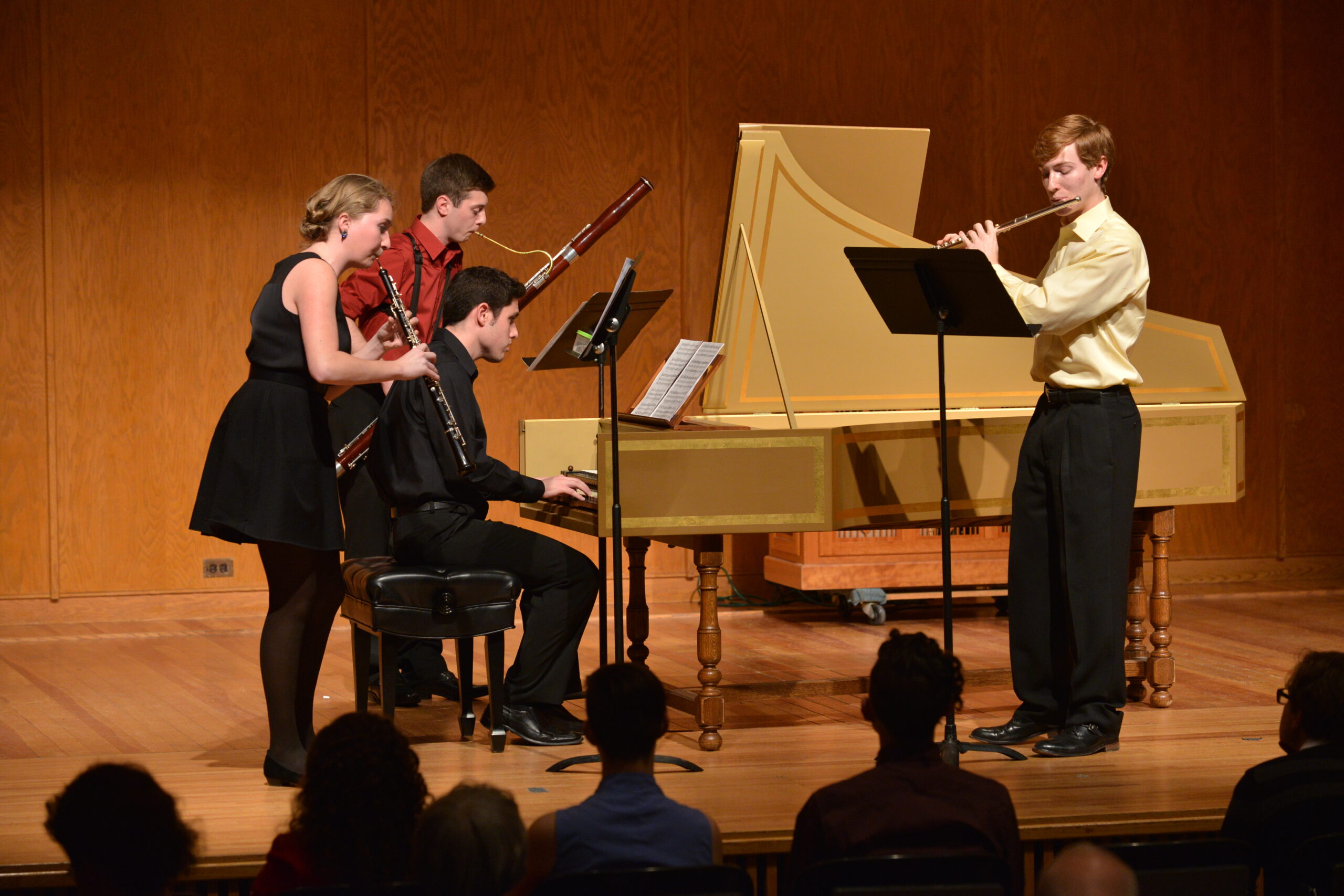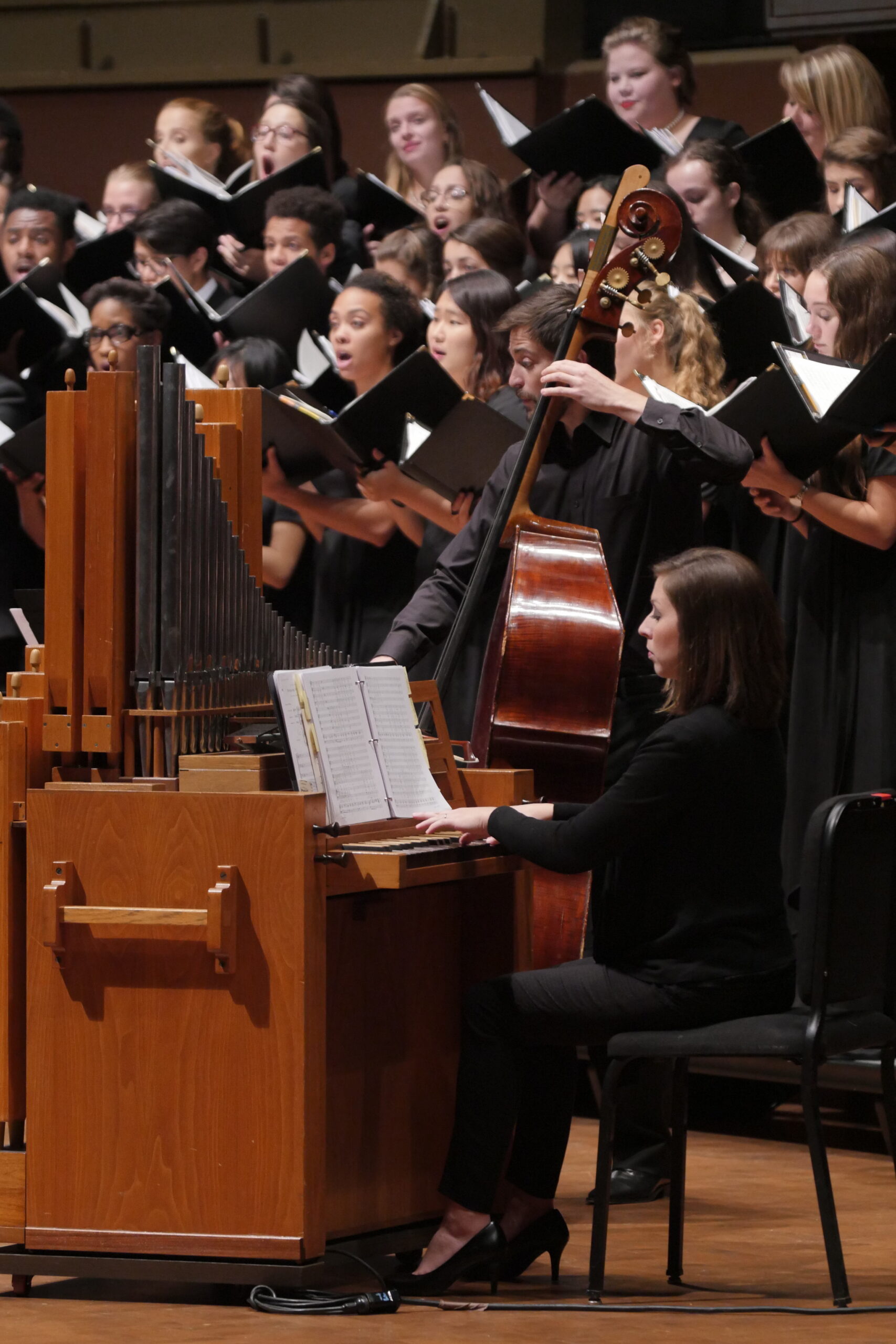Doctor of Musical Arts in Composition
Designed for students seeking to develop into a highly-qualified professional composer, through intensive study with major artist-teachers, this program is a rigorous three-year course of study that offers an exceptional musical education (technique, score study, diversity of programming, rigor in the depth and breadth of repertoire), encourages collaborations, and emphasizes personal and musical growth. Composition students will create many opportunities to work with performers, conductors and ensembles of varying size and repertoire focus, and develop new uses of music technology. The DMA culminates with the composition of an original large-scale dissertation.
Curriculum
The awarding of the doctoral degree is based upon demonstrable skill and proficiency in the major and cognate fields, not upon completion of a specified number of credit hours. Many variations on the usual pattern of elections will be acceptable, especially in those cases in which the student pursues independent study or works on special projects or research. After consultation with the advisor, the student should undertake various course elections that will help them to prepare for the general preliminary examinations.
Final Project:
The dissertation in Composition will consist of a score of major proportions in which the candidate finds ample opportunity to demonstrate strength of imagination and maturity of craft and musical language. The composition may be for an ensemble other than symphony orchestra, provided that the candidate has previously submitted scores that convince the Composition Department of their secure command of the orchestral medium. The writing of the student’s dissertation composition will be supervised by their dissertation committee.
Courses
SMTD offers a wide variety of courses across all disciplines.
Silent Advisor
Degree requirements and term-by-term layout for current students.
Faculty
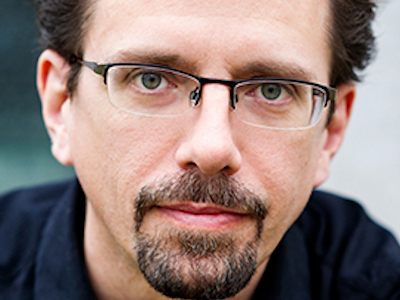
Evan Chambers

Michael Daugherty
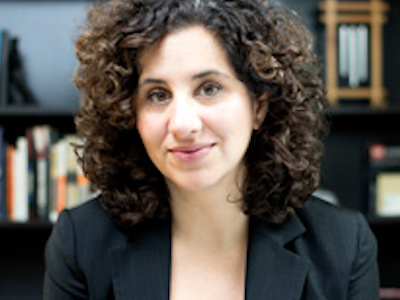
Roshanne Etezady
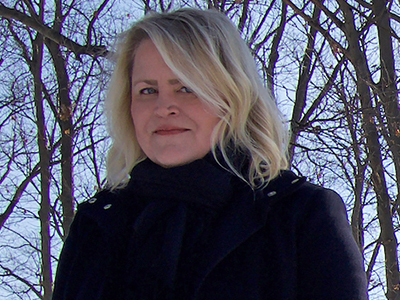
Kristin Kuster
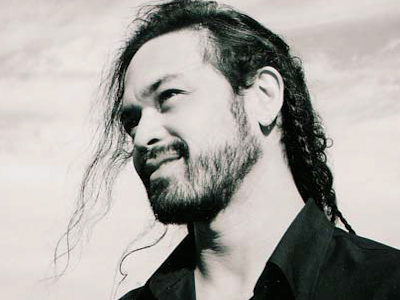
Erik Santos
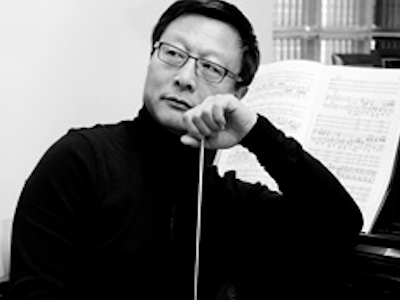
Bright Sheng
Performance Opportunities
From large ensembles in celebrated concert halls to chamber groups in intimate recital spaces, performance opportunities across all disciplines abound, with nearly 900 student performances each academic year. Whether your focus is on early, classical, or contemporary music, whether your passion is for jazz, electronic, or world music, there is an ensemble—or in many cases, multiple ensembles—to suit your interests, including specific opportunities for percussion, piano, and organ & carillon. For students in theatre & drama, musical theatre, dance, and opera, opportunities abound in both professionally produced and student-run presentations.

